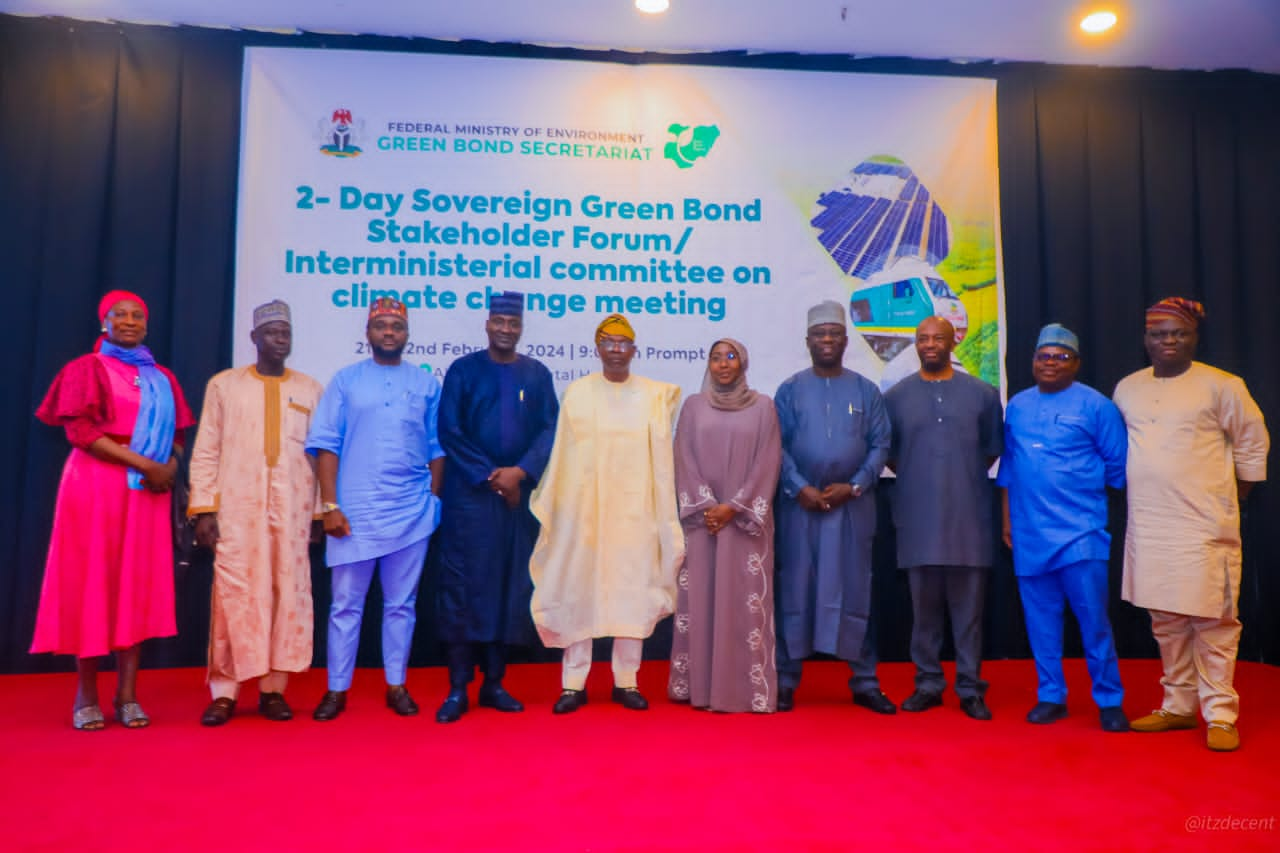
The Minister of State for Environment, Dr. Iziaq Adekunle Salako has said that that Climate Change issues were not just environmental in nature, developmental issues, having enormous economic and social consequences.
The Minister disclosed this at the Inter – Ministerial Committee on Climate Change Meeting/Green Bond Program which took place in Abuja between Wednesday and Thursday.
Salako said that there was the need to understand the magnitude of the economic, social and ecological challenges that confronted us as a nation.
He said: “The Green Bond issuance has become part of our climate experience. It is in this regard that we shall continue to draw strength and lessons from one another as we proceed in the nation’s low-carbon pathway through the Green Bond process”.
He said the third issuance was dependent on the collaboration of stakeholders doing the right thing especially as related to developing the green bond budget.
Salako therefore enjoined major stakeholders that efficiency of resource allocation and utilization to priority projects, especially for Sovereign Green Bond Issuance were critical to the successful implementation of the third issuing of the Green bond.
The Minister appreciated the efforts, collaboration and participation of the major stakeholders such as Debt Management Office, Budget Office of the Federation, the Office of the Accountant General for their leading roles in the Program, the World Bank through the ACReSAL project for financial support for the Green Bond Program.
Permanent Secretary, Federal Ministry of Environment, Mahmud Adam Kambari, said that the maiden and follow-up issuances of the Sovereign Green Bond to the tune of NGN25.69bn have funded projects across five priority sectors of Environment, Energy, Agriculture, Transport and Water.
He said that the projects funded from the proceeds of the bond provided clear and quantifiable environmental benefits including 12.5W of Renewable Energy generation, over 2,000ha of afforestation/reforestation programmes and an estimated emission reduction potential of 33,504 tonnes of carbon dioxide equivalent per annum.
The Permanent Secretary appreciated the World Bank through the ACReSAL Project for their significant role and financial support to the Green Bond program.
Kambari urged the relevant stakeholders to participate actively to ensure that the objective of the meeting was achieved.
It would be recalled that Nigeria was the first country in Africa and the fourth globally to issue a Sovereign Green Bond and the first Sovereign Green Bond hub certified using the Climate Bonds Standard.


